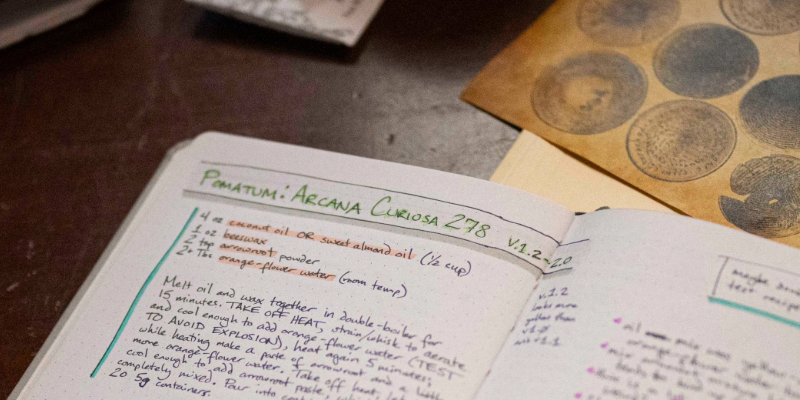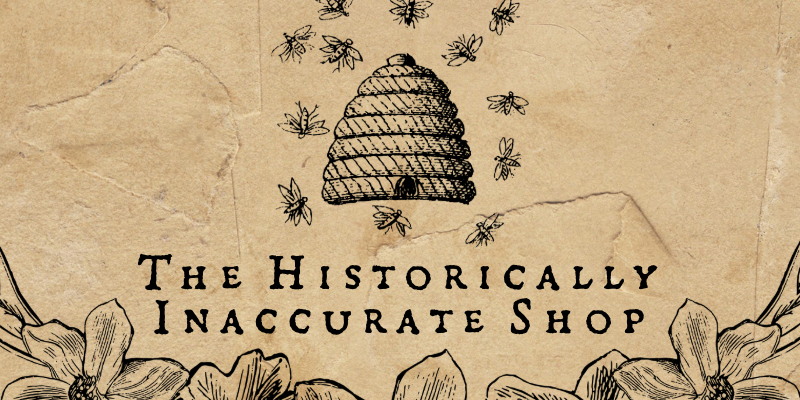↫↫↫↫↫
The Minor Hours and Small Thoughts Magazine
An “escape from the news” microzine in the style of a Regency- and Victorian-era household magazines
↬↬↬↬↬
Experimental Archaeology
Recreating household goods from the Western Scientific Revolution with manuals from the Early English period (1470s-1710s)
↫↫↫↫↫
Historically Inaccurate
Small-batch historical goods developed through experimental archaeology, small press publishing, and POD art
↬↬↬↬↬
No Story Is Sacred
One of the four sibling hosts of No Story Is Sacred, a narrative engineering (or re-engineering) podcast
↫↫↫↫↫
Research and Presentations
Some academia, some writing instruction, mostly an unhealthy fondness for slideshows







